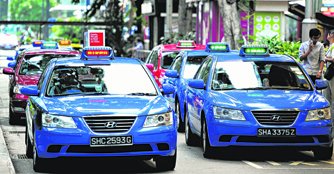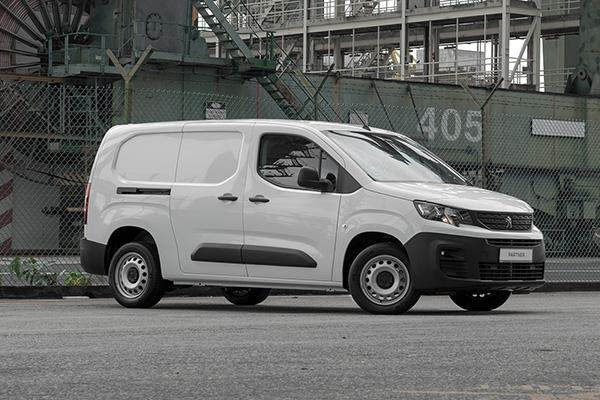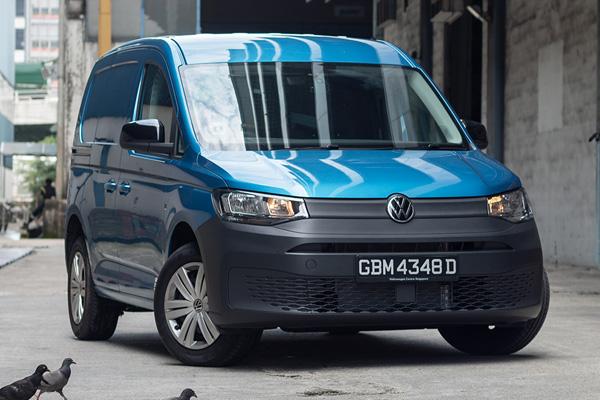Singapore to review emissions policy to discourage use of diesel vehicles
26 Jan 2017|3,426 views
The Government is reviewing its policies on vehicle emissions with a view to discouraging diesel vehicles as concerns grow globally over the health impact of diesel emissions. Meanwhile, a study commissioned by the Government found electric vehicles to be a promising, albeit more expensive, alternative to diesel vehicles, and renewable diesel to be an option for heavy trucks.
Minister for the Environment and Water Resources Masagos Zulkifli said at an industry consultation session on Wednesday evening that the pollution threat from diesel emissions has come under scrutiny in recent years. "It turns out that diesel, although it produces less carbon dioxide than usual cars, is not as clean as was earlier touted," he told a group of 33 representatives from transport companies, non-governmental organisations and universities.
He noted that the World Health Organisation has listed diesel emissions as carcinogenic, and that nitrogen oxide emissions from diesel vehicles in the real world are several times higher than levels approved in the laboratory. High nitrogen oxide levels increase the risk of respiratory infection, and harm lung functions. Already, major cities such as Paris, Mexico City, Madrid and Athens have moved to ban diesel vehicles.
Diesel vehicles made up a fifth of Singapore's vehicle fleet in 2015. These comprise mainly commercial vehicles, buses and taxis, but diesel passenger cars have been the fastest growing segment of the car population in recent years. To better understand alternative technologies to diesel vehicles, the ministry last year commissioned the Singapore University of Technology and Design (SUTD) to undertake a six-month study.
The study compared various technologies, including electric vehicle, fuel cell, compressed natural gas, biodiesel, and renewable diesel using several factors - air emissions, purchase cost, operating cost, infrastructure cost and travel range, among others. It found that electrification can be pursued for many vehicle types, except for those that need to travel long distances. For heavy goods vehicles, which cannot use electrification as the battery required will be too heavy, renewable diesel is an alternative, said SUTD Assistant Professor Lynette Cheah who conducted the study.
The ministry will unveil its plans to tackle air pollution from diesel vehicles during the Committee of Supply debate in March.
The Government is reviewing its policies on vehicle emissions with a view to discouraging diesel vehicles as concerns grow globally over the health impact of diesel emissions. Meanwhile, a study commissioned by the Government found electric vehicles to be a promising, albeit more expensive, alternative to diesel vehicles, and renewable diesel to be an option for heavy trucks.
Minister for the Environment and Water Resources Masagos Zulkifli said at an industry consultation session on Wednesday evening that the pollution threat from diesel emissions has come under scrutiny in recent years. "It turns out that diesel, although it produces less carbon dioxide than usual cars, is not as clean as was earlier touted," he told a group of 33 representatives from transport companies, non-governmental organisations and universities.
He noted that the World Health Organisation has listed diesel emissions as carcinogenic, and that nitrogen oxide emissions from diesel vehicles in the real world are several times higher than levels approved in the laboratory. High nitrogen oxide levels increase the risk of respiratory infection, and harm lung functions. Already, major cities such as Paris, Mexico City, Madrid and Athens have moved to ban diesel vehicles.
Diesel vehicles made up a fifth of Singapore's vehicle fleet in 2015. These comprise mainly commercial vehicles, buses and taxis, but diesel passenger cars have been the fastest growing segment of the car population in recent years. To better understand alternative technologies to diesel vehicles, the ministry last year commissioned the Singapore University of Technology and Design (SUTD) to undertake a six-month study.
The study compared various technologies, including electric vehicle, fuel cell, compressed natural gas, biodiesel, and renewable diesel using several factors - air emissions, purchase cost, operating cost, infrastructure cost and travel range, among others. It found that electrification can be pursued for many vehicle types, except for those that need to travel long distances. For heavy goods vehicles, which cannot use electrification as the battery required will be too heavy, renewable diesel is an alternative, said SUTD Assistant Professor Lynette Cheah who conducted the study.
The ministry will unveil its plans to tackle air pollution from diesel vehicles during the Committee of Supply debate in March.
Latest COE Prices
September 2025 | 1st BIDDING
NEXT TENDER: 17 Sep 2025
CAT A$107,889
CAT B$127,501
CAT C$71,556
CAT E$127,901
View Full Results Thank You For Your Subscription.



















